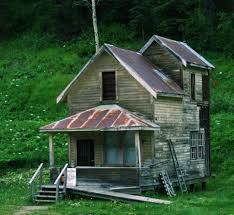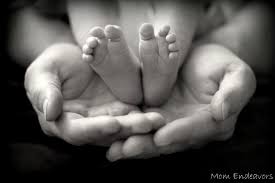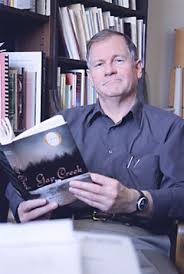Appalachia Project: Gap Creek, 1999
Gap Creek, by Robert Morgan
 Gap Creek, by Robert Morgan, is a good read and it is interesting. And it is Appalachian. But it is also morose, grim, and glorifies suffering. Julie and Hank, the young couple who are almost the only characters in the book, face a range of biblical plagues--fire, ice, flood, poverty, injustice, famine, vermin, sickness, death, and even a wicked mother-in-law. Each chapter contains something horrible, except the chapter where they join the church, which is just surreal.
Gap Creek, by Robert Morgan, is a good read and it is interesting. And it is Appalachian. But it is also morose, grim, and glorifies suffering. Julie and Hank, the young couple who are almost the only characters in the book, face a range of biblical plagues--fire, ice, flood, poverty, injustice, famine, vermin, sickness, death, and even a wicked mother-in-law. Each chapter contains something horrible, except the chapter where they join the church, which is just surreal.
Morgan provided no resting places where the reader could gather herself together and reflect. It's a roller coaster with no uphills or else no downhills, depending on your point of view. I guess it was all uphills...always a battle against the gravity of crisis and disaster. Probably, this is realistic. But good fiction and realism don't always work together. That's why we have fiction...to lead us through a narrative experience, not to whack us over the head. When I have written most realistically, people didn't believe it, didn't believe in it. There is a special way to enter the heart of a reader. You have to get the key in the lock.
 Perhaps the religious aspect of the book was meant to give meaning to Julie's suffering, to ennoble it. Instead, it felt self-delusionary, and a trap that kept her bound to frightening peril and a bad marriage.
Perhaps the religious aspect of the book was meant to give meaning to Julie's suffering, to ennoble it. Instead, it felt self-delusionary, and a trap that kept her bound to frightening peril and a bad marriage.
OK, that's some of the negative stuff. Gap Creek tells the story of the first year of marriage of a teenage couple who married in 1899 and set off into the mountains to start their lives together. The heroine's age was the saving grace for her. I couldn't believe a mature woman doing some of the things she did, but I could believe a seventeen-year-old doing them. She copes with all the fantasies a teenager has about marriage and housekeeping butting up against a harsh reality. Each chapter is its own harrowing experience...but Julie doesn't seem to learn from them. Her weird optimism is indefatigable.
 There is some foundation for Julie's doggedness in the story of her childhood. As the oldest, she was Dad's chief laborer on the farm. The second daughter became the housekeeper's helper. Julie was used to plowing, cutting wood, butchering...all sorts of heavy work. She was so used to labor that keeping house seemed almost silly. Labor is Julie's only coping strategy, as this quote describes:
There is some foundation for Julie's doggedness in the story of her childhood. As the oldest, she was Dad's chief laborer on the farm. The second daughter became the housekeeper's helper. Julie was used to plowing, cutting wood, butchering...all sorts of heavy work. She was so used to labor that keeping house seemed almost silly. Labor is Julie's only coping strategy, as this quote describes:
"That evening I started cleaning up the house inside. I washed the floors and the walls and the windows. I polished the windows so clean they looked like they wasn't there. It seemed I didn't have control over anything in the world except the work I done. I couldn't make nothing right, but I could make the floor and the dishes shine...I thought, I want to make one tiny place as fit as it can be...By the time Hank came home...I had even washed the ceilings and the backs of the doors."
 Julie was so used to labor that having a baby was just another episode. "This is my work, [she]
thought. This is the work only I can do. this work meant for me from the beginning of time. And this is work leading through me in an endless chain of people all the way to the end of time. Other women had done their work down the course of the years, and now it's my turn. There's nothing to do but take hold of the pain and wrestle with it. It was not a choice to give in."
Julie was so used to labor that having a baby was just another episode. "This is my work, [she]
thought. This is the work only I can do. this work meant for me from the beginning of time. And this is work leading through me in an endless chain of people all the way to the end of time. Other women had done their work down the course of the years, and now it's my turn. There's nothing to do but take hold of the pain and wrestle with it. It was not a choice to give in."
 Gap Creek also depicts how poverty is continued across generations as Julie and Hank recreate the situations that trapped their parents. Scant education, narrow world, naive trust, rigid sex roles. The poverty depicted is as wearing on the reader as it is on the young couple. "We didn't have any money, and our clothes was wearing thin, and I kept patching Hank's overalls and mending his socks. His shirts was wore out at the elbows. But you can come to take pride in clean, patched clothes. You take pride in how you can keep things together with no money and just hard work."
Gap Creek also depicts how poverty is continued across generations as Julie and Hank recreate the situations that trapped their parents. Scant education, narrow world, naive trust, rigid sex roles. The poverty depicted is as wearing on the reader as it is on the young couple. "We didn't have any money, and our clothes was wearing thin, and I kept patching Hank's overalls and mending his socks. His shirts was wore out at the elbows. But you can come to take pride in clean, patched clothes. You take pride in how you can keep things together with no money and just hard work."
 The other bizarre thing in a book so dedicated to gritty reality is that, of course, certain harrowing parts of Julie's life were non-existent. It was clear that they had an outhouse, but Julie never once used it or even ever had to go to the bathroom. She never bathed or washed. She had no menstruation (partly because she became pregnant so quickly). And, she apparently kept her afterbirth inside. Her labor and delivery are described in excruciating detail but she never birthed the placenta...it was invisible. She was bedridden for days after she gave birth, but no mention was made of the heavy bleeding that follows birth, no mention of changing the sheets, although the baby's diaper was a major topic.
The other bizarre thing in a book so dedicated to gritty reality is that, of course, certain harrowing parts of Julie's life were non-existent. It was clear that they had an outhouse, but Julie never once used it or even ever had to go to the bathroom. She never bathed or washed. She had no menstruation (partly because she became pregnant so quickly). And, she apparently kept her afterbirth inside. Her labor and delivery are described in excruciating detail but she never birthed the placenta...it was invisible. She was bedridden for days after she gave birth, but no mention was made of the heavy bleeding that follows birth, no mention of changing the sheets, although the baby's diaper was a major topic.
 It's funny to me that gritty books still can't handle toileting issues. I'm listening to a Janet Evanovich book right now and she frequently has to shower and use the bathroom, thank god. A normal woman. At least doing laundry was shown as hideous work. And Julie was constantly trying to figure out how to keep them fed.
It's funny to me that gritty books still can't handle toileting issues. I'm listening to a Janet Evanovich book right now and she frequently has to shower and use the bathroom, thank god. A normal woman. At least doing laundry was shown as hideous work. And Julie was constantly trying to figure out how to keep them fed.
No serious thumbs-down on this book. I enjoyed reading it, despite all of the Issues I've raised. Most of my issues are ubiquitous and not particular to this author. Still, the afterbirth was a pretty big miss!
No comments:
Post a Comment